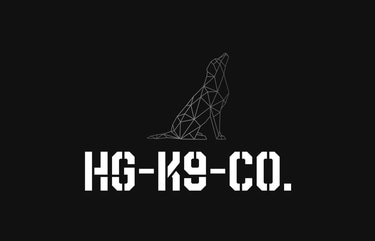what is the best diet for your dog?
Written by Jack Smithson, head trainer at HGK9CO, Harrogate K9 Company. Offering Dog Walking & Daycare in Harrogate and Dog & Puppy Training in Harrogate & North Yorkshire.
Introduction:
Choosing the right diet for your dog is essential for their health, longevity, and overall well-being. With a plethora of options available, it can be challenging to decide what’s best for your furry friend. In this blog post, we’ll explore different types of dog food, including raw, kibble, and whole food human-grade diets, and discuss which dogs might benefit most from each type.
1. Raw Diet: A raw diet consists of uncooked meat, bones, fruits, and vegetables. Proponents of raw feeding believe it is the most natural diet for dogs, closely mimicking what their ancestors would have eaten in the wild.
Benefits:
Improved Digestion: Many dogs experience better digestion and less gastrointestinal distress on a raw diet.
Healthier Coat and Skin: The high protein and healthy fats in raw diets can lead to shinier coats and healthier skin.
Increased Energy Levels: Dogs on a raw diet often have higher energy levels and better overall vitality.
Considerations:
Risk of Bacterial Contamination: Handling raw meat requires careful hygiene to prevent bacterial contamination that could harm both the dog and the owner.
Nutritional Balance: Ensuring a balanced diet with all necessary nutrients can be challenging and often requires careful planning or consultation with a veterinarian.
Cost: Raw feeding can be more expensive than other types of diets due to the cost of high-quality meat and ingredients.
Best For:
Active Dogs: High-energy breeds that need a lot of protein and fat.
Dogs with Food Sensitivities: Dogs with allergies or sensitivities to common kibble ingredients may benefit from a raw diet.
2. Kibble (Dry Food): Kibble is the most common type of dog food, consisting of processed dry pellets made from various ingredients, including meat, grains, and vegetables.
Benefits:
Convenience: Kibble is easy to store, measure, and serve, making it a convenient option for many dog owners.
Cost-Effective: Generally, kibble is more affordable than raw or whole food diets.
Dental Health: Some kibbles are designed to help clean dogs’ teeth and reduce plaque build-up.
Considerations:
Quality Variation: The quality of kibble can vary significantly between brands. It's essential to choose high-quality kibble with real meat and wholesome ingredients.
Additives: Some kibbles contain artificial additives, preservatives, and fillers that may not be ideal for all dogs.
Best For:
Busy Owners: Those looking for a convenient, cost-effective option.
Dogs with No Dietary Restrictions: Dogs that do well on a variety of ingredients and have no specific dietary needs.
3. Whole Food Human-Grade Diet: A whole food human-grade diet consists of fresh, cooked, or raw ingredients that are safe for human consumption. These diets often include a variety of meats, vegetables, fruits, and grains.
Benefits:
High-Quality Ingredients: Human-grade diets use high-quality, fresh ingredients that are often more nutritious.
Customisable: These diets can be tailored to meet the specific nutritional needs of individual dogs.
No Additives: Whole food diets typically do not contain artificial additives or preservatives.
Considerations:
Preparation Time: Preparing a whole food diet can be time-consuming and requires meal planning.
Cost: High-quality ingredients can be expensive, making this diet more costly than kibble.
Nutritional Balance: Ensuring a balanced diet requires knowledge and potentially consultation with a veterinarian or canine nutritionist.
Best For:
Dogs with Specific Dietary Needs: Dogs with health issues, allergies, or specific dietary requirements.
Owners Committed to Meal Prep: Those willing to invest time and effort into preparing their dog’s meals.
Conclusion: Choosing the best diet for your dog depends on their individual needs, lifestyle, and your preferences as an owner. Whether you opt for raw, kibble, or a whole food human-grade diet, it's crucial to ensure that your dog receives a balanced and nutritious diet that supports their health and well-being. Consult with your veterinarian to determine the most suitable diet for your furry friend and make informed decisions that will keep them happy and healthy for years to come.




